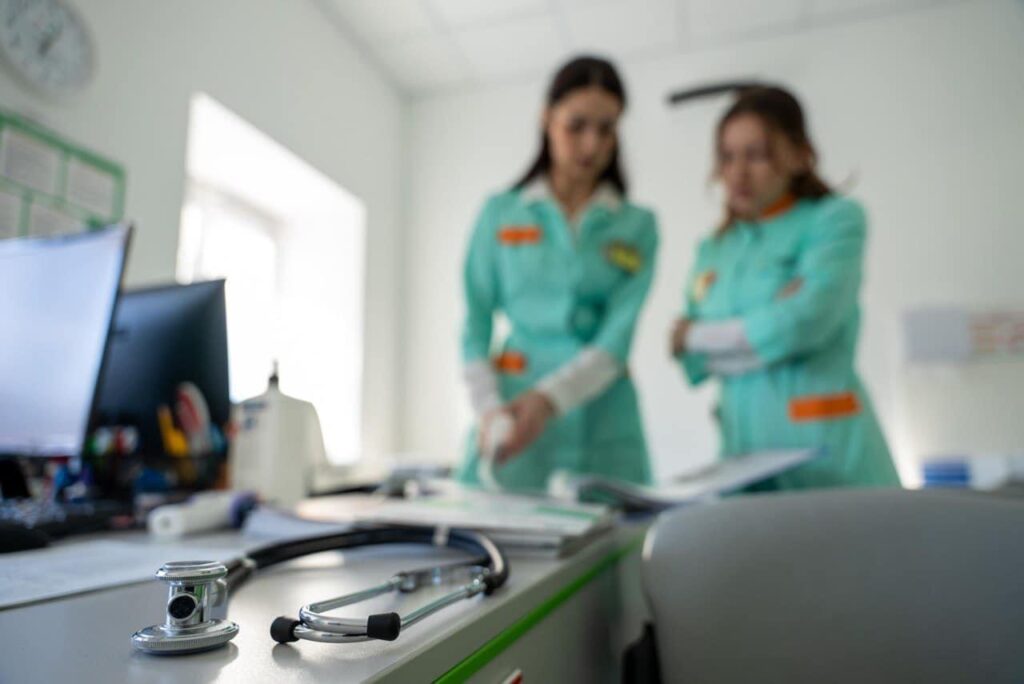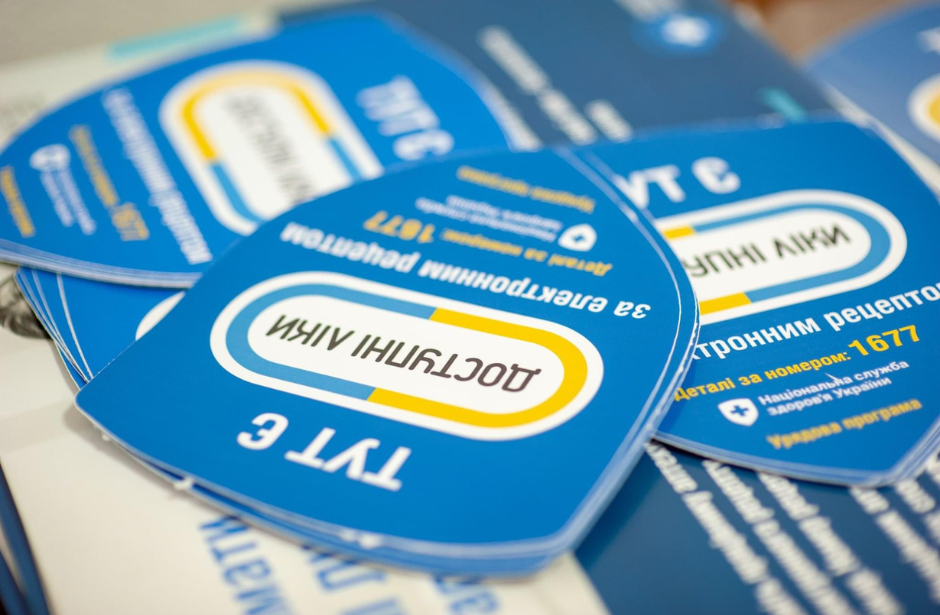The Affordable Medicines Program Is Helping Ukraine Expand Access to Health Services Despite the War
The Affordable Medicines Program Is Helping Ukraine Expand Access to Health Services Despite the War
By Sarah Hladik

Over two years have passed since Russia’s full-scale invasion placed Ukraine and its health care system under siege. The attacks have destroyed hospitals and health clinics, disrupted supply chains, and prevented people from receiving the essential medicines and care they need. But despite constant shelling and logistical challenges caused by the ongoing war, the country continues to innovate and transform its health care processes to ensure the smooth and transparent delivery of medical assistance to Ukrainians. Through the national Affordable Medicines Program (AMP), the Government of Ukraine (GOU) supports nearly five million individuals with access to safe, affordable medicines and has led to savings of 85% for patients seeking treatment for chronic conditions.
Long before the full-scale war began, the GOU committed to making health care more accessible and affordable for all. With support from the USAID Safe, Affordable, and Effective Medicines (SAFEMed) for Ukrainians Activity led by Management Sciences for Health (MSH), the GOU launched the AMP in 2017. The program facilitates access to essential outpatient medications for people with chronic health conditions—the leading cause of morbidity and mortality in Ukraine. It operates by utilizing various measures such as price regulation and reimbursement mechanisms. The National Health Service of Ukraine (NHSU) took over management of the AMP in 2019 and has expanded the number and types of medications it covers each year since. Currently, the program provides patients with full or partial reimbursement for essential medicines for treating cardiovascular diseases, diabetes mellitus/insipidus, respiratory tract diseases, mental and behavioral disorders, epilepsy, and Parkinson’s disease.
For the past five years, Ukrainians have benefitted from the convenience of electronic prescription (ePrescription), which simplifies the prescription process and ensures safety and transparency in medication dispensing. Since April 2023, all prescription drugs, regardless of whether they are part of the AMP, have been required to be dispensed exclusively through ePrescription, with exceptions for frontline territories and regions experiencing hostilities.
Sustaining a Lifeline in Times of War
Limited access to medicines and care can be detrimental for those living with chronic diseases who rely on medication to stabilize and control their conditions. To help prevent disruptions in access to lifesaving and other essential medications during the war, SAFEMed stepped in to provide expanded support to the NHSU to ensure the AMP continues to operate. This includes bolstering the NHSU information technology department, providing legal support in drafting regulations needed to adapt to martial law, and developing patient education videos about accessing prescriptions through the AMP amid conflict. SAFEMed has also helped ensure that the requirements of the AMP are adjusted to take wartime challenges into account, especially for those in recently occupied territories. For example, the program began allowing paper-based prescriptions and giving internally displaced patients the ability to receive medications without a new prescription. The commitment of the NHSU and SAFEMed to adapt to the country’s ever-changing needs has allowed the program to not only expand access to medicines but become a vital wartime resource.

In 2023, SAFEMed conducted a study to assess the level of user satisfaction among patients, doctors, and pharmacists utilizing the AMP, incorporating both qualitative and quantitative methods to gather research. Nearly 80% of patients involved in the survey and/or interview process of the study stated that their treatment costs have been reduced. This, in turn, has encouraged more patients to seek out medical care from health care professionals. The AMP “helps reduce self-medication among people,” one patient shared. “If people know that they can get medicines at little to no cost, they would rather visit a doctor and then the doctor can recommend medicine for them, rather than a person going to a pharmacy and buying something that does not actually help them because they do not have enough money.”
Despite wartime challenges, the NHSU recently expanded the AMP to cover blood glucose level test strips—the first diagnostic device to become part of the program. This coverage officially went into effect in October 2023, enabling patients with type 1 diabetes to obtain test strips free or at reduced cost via ePrescription.
Innovating for Access and Quality
This expanded coverage and the introduction of ePrescription not only benefits patients but also helps doctors streamline their daily workloads so they have more time to focus on providing quality patient care. The AMP “has simplified my work,” a doctor shared. “Now that prescriptions can be made remotely, even without their presence, patients can call us during our working hours and tell us what medicines they need.”
As a result, 90% of doctors believe the AMP has improved convenience for their patients and 77% think it has increased access to medicines. One doctor shared how the program enables patients to take full courses of medications and better control their chronic diseases while also motivating them to undergo treatment since they know the medications will be available.
“The reduced price helps people realize that treatment is necessary [to live a healthy life],” the doctor said. “When there is [financial] help from the state here, people take advantage of this opportunity.”
At the pharmacy level, the AMP has helped cultivate trusting relationships between pharmacists and patients. Almost every pharmacy that participated in the study has patients who regularly use the program, so pharmacists know the patients and what they need and can properly track and plan to ensure the necessary medicines are in stock. The trust that patients have in the program and in the medicines they are receiving further builds their trust in the country’s health care system. As the list of medicines covered under the AMP continues to expand, the number of patients using the program on a recurring basis will only grow. One pharmacist expressed approval of that expansion, saying, “the list of medicines has been supplemented, and new medicines have been added that lower blood sugar, medicines that treat asthmatics, blood thinners, and diuretics as well. The list of medicines continues to expand.”
From the doctors who prescribe the medications to the pharmacists who dispense the prescriptions to the patients who take the medicines to improve their health, the AMP has had a positive impact at each level of the health system and, in turn, is promoting better health outcomes. While Ukraine grapples with the ongoing war, the resilience of initiatives such as the AMP has allowed the health care system not only to remain intact but to expand to reach more individuals in need. SAFEMed is committed to strengthening Ukraine’s pharmaceutical sector and will continue helping make life saving medications accessible to all.